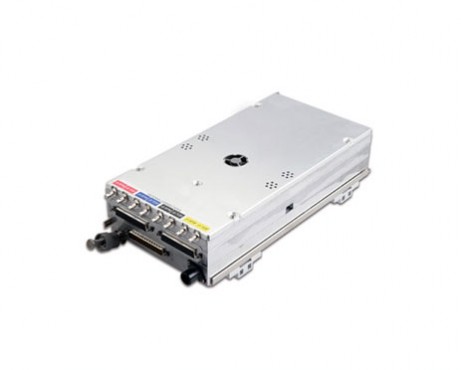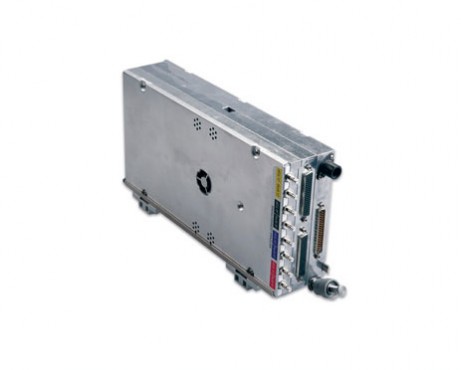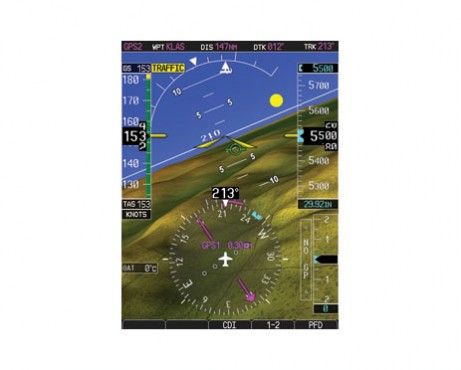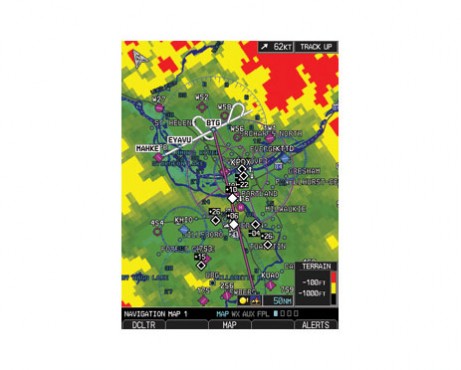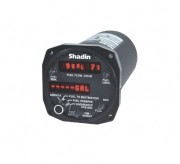 Shopping cart: 0
Shopping cart: 0 |
|
GTS 850 ADS-B enhanced Traffic Advisory (TAS) and Traffic Collision Avoidance (TCAS I) Systems
For pilots operating high-performance aircraft in busy, high-density airspace, traffic separation requires a heightened sense of situational awareness – to “see and avoid” in all three dimensions. Pilot alertness and vigilance are essential. But for maximum protection, nothing beats having an extra set of “electronic eyes”. That’s why Garmin developed the GTS™ family of ADS-B enhanced Traffic Advisory (TAS) and Traffic Collision Avoidance (TCAS I) Systems.
Featuring exclusive Garmin CLEAR CAS™ technology, these attractively priced systems provide accurate, dynamic traffic surveillance – with ATC-like spoken audio alerts to help pilots quickly respond to potential flight path intrusions from other aircraft.
Separation Anxiety Terminated
Augmenting reports from radar-based air traffic control, the GTS 850 is able to use a synthesis of both active and passive surveillance technology (including 1090 MHz ADS-B “In”) to correlate target data and pinpoint traffic threats. This hybrid active/passive surveillance is enabled with installation of a Garmin GTX 330 ES “extended squitter” Mode-S transponder (sold separately), or other complementary class of ADS-B “Out” equipment, such as Garmin’s GDL 90 Universal Access Transceiver (or UAT).
With this technology, aircraft are able to automatically report and receive more stable, and more detailed, traffic data – including aircraft flight ID, GPS-based positioning, relative altitude and direction of flight. Course trend vectors and vertical climb or descent information can also be shown on compatible displays. Thus, instead of just seeing random targets on a display, pilots can now identify and track specific aircraft flight trajectories with much greater precision. So, in busy airspace, they’re able to fly with a much clearer tactical picture of their immediate traffic situation.
More Integration Means Higher Awareness
Displaying traffic symbols and advisories on a variety of compatible display products in the cockpit, the GTS 850 can track up to 60 traffic targets simultaneously – and depict up to 30 intruder threats at a time, depending on the display being utilized. (There is no dedicated instrument or panel space required for Garmin TAS.) Creating a 360° zone of detection around your aircraft, the GTS 850 enables you to quickly see and identify targets in your airspace that may pose a potential collision hazard.
Voice Alerting Helps Keep Heads Up, Eyes Out
In place of the generic “Traffic, traffic” voice alerts of some earlier-generation systems, the GTS 850’s exclusive CLEAR CAS technology provides for expanded audio messaging in an ATC-like verbal format: “Traffic. One o’clock. High (or Low or Same Altitude). Two miles.” If surveillance bearing information is not available on the intruder, “Traffic, No Bearing” is called out.
By vocalizing more specific traffic-spotting information, pilots know instantly where to look without going “eyes-down” to locate the intruder target on the cockpit display. Sometimes, those vital split-seconds can make all the difference in a fast-converging situation.
Higher Speeds Call for Faster Response
The Garmin GTS family of TAS and TCAS I systems offers a full range of traffic surveillance capabilities to fit your specific aircraft and operational criteria.
Recommended for today’s higher-capability cabin class turboprops and business or regional jets, the GTS 850 TCAS I offers 250 watts of nominal power output, a +/- 10,000-foot vertical separation maximum, and up to 40 nm of active interrogation range in the forward direction. All GTS units will operate to 55,000 feet. And a Garmin Mode-S transponder (sold separately) is required as part of the GTS 850 system installation.
For commuter aircraft (those with 10 to 30 passenger seats), TCAS I capability is mandated by the FAA. The Garmin GTS 850 system meets these stringent TCAS I performance criteria, providing the range and response to give early warning of fast-closing aircraft in high-traffic airspace. Targets are depicted using familiar TCAS-defined symbology. And selectable horizontal display ranges allow pilots to maintain the “big picture” of overall traffic activity in their airspace.
Delivery package.
- GTS 850 LRU
- GPA 65
- GA 58 Direction Antenna



